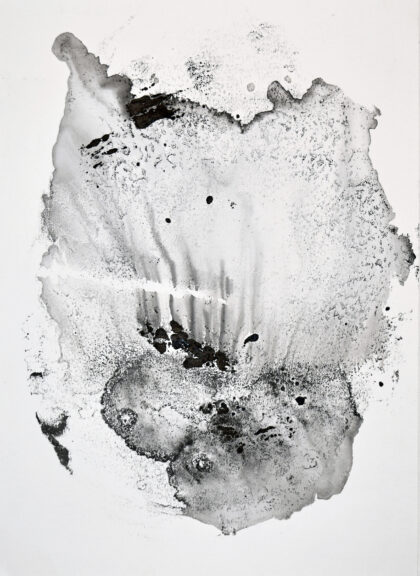After Barbara
By Marc Petrie
An anthropocene translation
of Jacques Prévert’s “Barbara”
Barbara, you no longer exist
Like Jacques Prévert, like the war.
Yet Brest, the city remains
As before, though truly
Most has been replaced
By concrete and steel.
And your lover no longer exists
Maybe you raised a family?
We don’t know, but it’s all the same.
The poem, Barbara, remains.
The songs of Trenet, Piaf, Montand
And my great-aunt Jane Morlet
You can hear them all on YouTube.
I read Jacques Prévert.
And I think of all of you.
You know, Barbara, the Nazis returned.
They marched in the middle of a city
In the United States and chanted
“Jews will not Replace us.”
And the war, maybe war will return,
It has begun in the Ukraine,
Now that most of the world has forgotten the last one.
The ocean remains, and the rain,
But it is not Trenet’s ocean.
It is a dying sea acidic with plastics, slowly losing its currents,
Its waters are warming, melting ice,
Waters that rise each day, each month, each year.
Brest will drown in the sea.
Nothing is as it was, Barbara.
Jacques Prévert (1900-1937) was a member of the Surrealist movement in the late 1920s; he wrote for and travelled with the Theatrical Company Groupe Octobre, wrote scripts for such films as Les Enfants du paradis and Le Crime de Monsieur Lange. Many of Prévert’s poems were set to music, such as “Barbara” and “Les Feuilles Mortes.”
Marc Petrie‘s work has been featured on APM’s Writer’s Almanac. His poems have appeared in City Lights Review, Verse Virtual, Altadena Review, Book of Matches, American Poetry Review, Pearl, and California State Poetry Review, the American Poetry Review, Altadena Review, and Book of Matches. Publications include Poems of Nature and Despair, A Dream Once Dreamed, The Orange Love Spoon, and Then All Goes Blue. He has published translations by Jacques Prévert, Anna Ahkmatova, and Guillaume Apolinaire. Mr. Petrie teaches middle school math in Santa Ana California and lives in Tustin California with his wife and dog.
Visual artist John Woodcock lives and works in Southern California. He studied Contemporary Fine Art at Northumbria University, Newcastle, United Kingdom with a focus in Printmaking. Motivated by natural processes, land art, forces, and movement, his most recent body of work predominately experiments with Relief and Monoprinting techniques using a limited pallet. He attempts to manipulate surface and texture to reshape and reinvent landscape, while encouraging chance in the work. Using a restrictive pallet allows him to return to the most basic elements – light and dark, life and death, purity and absence.
Translator’s Note:
In “After Barbara,” I use Prévert’s work to expound on what has happened since the 1940’s touching on climate change, 20th century history, and the history of my own French family. I believe the work remains faithful to the original, which ended with the line ‘Au loin tres loins de Brest/Donc il ne reste rien.’ In the end nothing remains, and we just flow through the wars, the disasters, and the triumphs of our lives. Brest’s recorded tidal charts span 212 years, some of the oldest in Europe. Its location along the Breton coast make it susceptible to the negative effects of sea level rise, and it has hosted several international conferences dealing with the issue of rising sea levels and means to deal with them, which adds to the irony of the poem. When we think about climate change, this line in the poem resonates: ‘Mais ce n’est plus pareil et tout est abîmé’ –But nothing remains the same and everything is damaged.
I am also indebted to Lawrence Ferlinghetti for his fine translation of “Barbara.” Both the late Mr. Ferlinghetti and myself are bi-lingual in French and English. I recently published a translation of Prévert’s Poem Le Cancre in a centennial anthology dedicated to the Lawrence Ferlinghetti.
Original Poem, “Barbara,” published in: Prevert, Jacques, Paroles, Editions Gallimard, 1949, p. 206-207.
Translation by Lawrence Ferlinghetti in: Aster, Paul, ed., Random House Book of Twentieth-Century French Poetry with translations by American and British Poets, Vintage Books, 1984, p. 344-345.
Yves Montand singing the poem is available on YouTube at this link.

